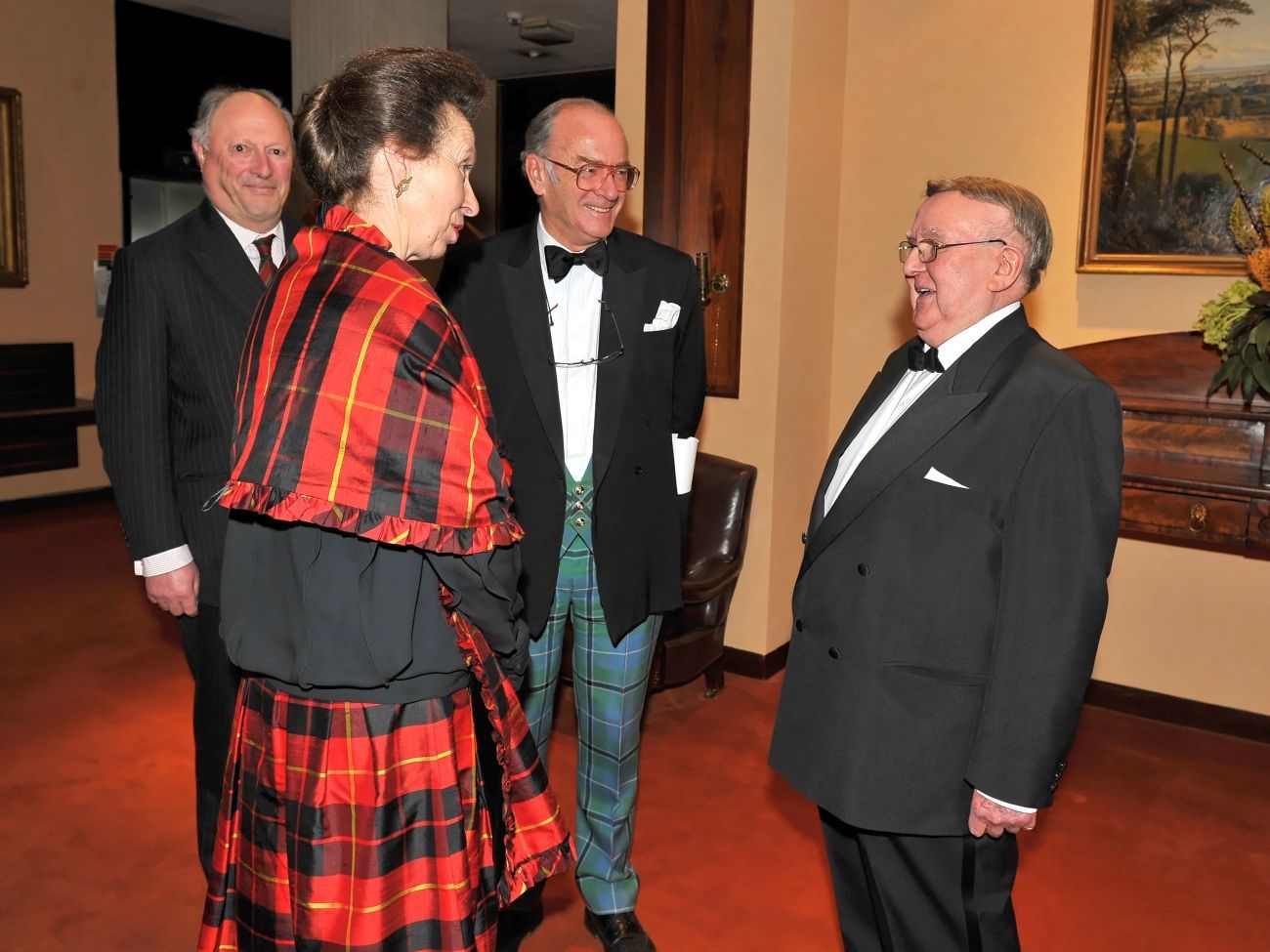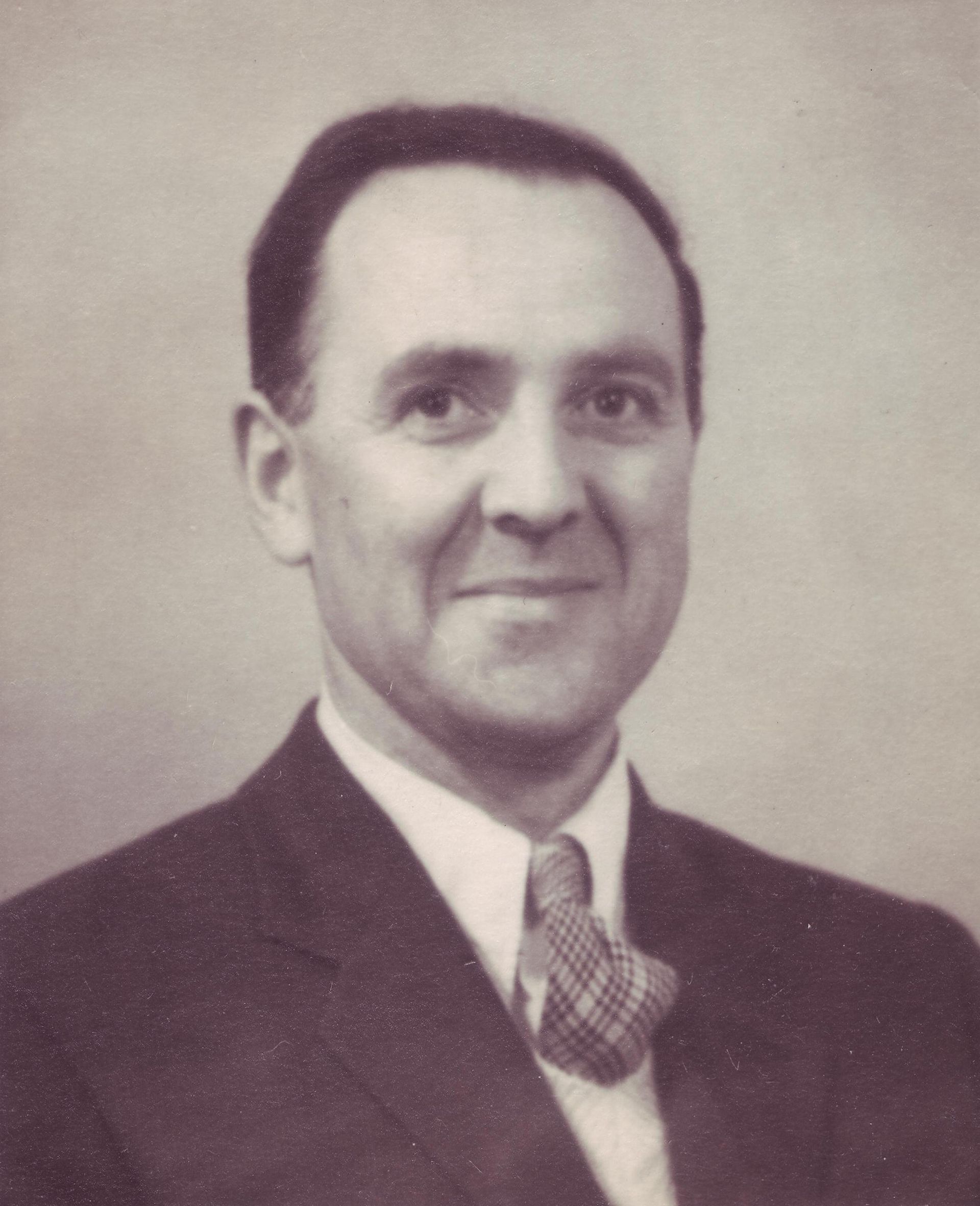2000
Our President in 2000/1 was:
W. Fraser Elgin C.A.
He proposed the Toast to Sir Walter at our 92nd Annual Dinner on Friday 2nd March 2001 in The Balmoral Hotel, Edinburgh
Download the [transcript] or read the [bulletin]
Summary of the Speech:
Fraser delivered an engaging and personal toast to Sir Walter Scott, focusing more on Scott’s life and character rather than his works. His speech was rich with anecdotes, historical context, and reflections on Scott’s lasting impact.
1. The Decline in Scott’s Readership
- Elgin lamented that few people read Scott today, noting an incident in a quiz show where contestants failed to name the author of The Bride of Lammermoor.
- However, he reassured the audience that Scott’s admirers remained strong within the Club.
2. Scott’s Life: A More Fascinating Approach Than His Novels
- Instead of a deep literary analysis, Elgin chose to focus on Scott’s life, a decision he justified by quoting W. M. Parker, who suggested that understanding Scott’s life, mind, and character enhances the appreciation of his works.
3. Scott’s Early Years and Influences
- Born in Edinburgh (15th August 1771), Scott was a Borderer by blood.
- Polio at 18 months left him lame, shaping his intellectual rather than military career.
- As a child, he stayed at Sandy-Knowe, Smailholm, where:
- His aunt Janet Scott read to him, fostering his love of Border ballads.
- He had a lucky escape when a maid, who resented him, attempted to kill him but was caught.
- By age two, he could recite long passages of poetry.
4. Education and Youth
- Studied at the Royal High School, Edinburgh (1779-1783):
- Disliked confinement and was a poor Greek student, earning the nickname "Greek Blockhead".
- His memory was phenomenal, especially for poetry and ballads.
- At Edinburgh University (1783-1786, 1789-1792):
- Became fluent in French, German, Italian, and Latin.
- Loved collecting old ballads and books, with 1,200 volumes by age 11.
- Apprenticed as a writer (law clerk) at 15 but disliked legal drudgery.
- Had a lifelong fascination with chivalry, adventure, and romance, shaped by walks around Arthur’s Seat and storytelling sessions with his best friend John Irving.
5. Early Literary Career and First Love
- First poem at age 12, a dramatic depiction of Mount Etna erupting.
- In 1797, he courted Williamina Belsches, but she married someone else.
- Married Charlotte Charpentier (French émigrée) in Carlisle Cathedral later that year.
6. Legal and Military Involvement
- Called to the Scottish Bar (1792) but preferred literary pursuits.
- Joined the Royal Edinburgh Light Dragoons (1797) as quartermaster.
- Became Sheriff of Selkirkshire (1799).
7. Literary Rise and Creation of the Historical Novel
- 1802-1803: Minstrelsy of the Scottish Border (3 volumes) gained him fame.
- 1805-1812: Poetry flourished (The Lay of the Last Minstrel, Marmion, The Lady of the Lake).
- 1814: Waverley published anonymously, launching the historical novel.
- Kept his identity secret until 1827, despite widespread speculation.
8. Abbotsford: His Greatest Passion
- Purchased Cartley Hole (later Abbotsford) in 1811.
- Spent huge sums building a grand mansion, filling it with artifacts.
- His library ceiling replicated Roslin Chapel, and the hall was adorned with clan heraldry.
9. Personal Hardships and Financial Ruin
- Became a partner in James Ballantyne’s publishing firm (1809), leading to financial disaster.
- 1826: Financial collapse left him £114,000 in debt.
- Instead of declaring bankruptcy, he worked tirelessly to pay off debts, writing novel after novel.
- Lost his wife Charlotte in 1826, further deepening his struggles.
10. Scott’s Political and Social Legacy
- 1813: Refused the Poet Laureateship, recommending Southey instead.
- 1815: Met the Duke of Wellington and visited Waterloo.
- 1818: Discovered the Honours of Scotland (Scottish Crown Jewels).
- 1820: Made a baronet by George IV.
- 1822: Organized the Royal Visit of George IV to Scotland, reviving tartan culture.
- 1825: Began his Journal (spelling it "Gurnal"), an invaluable record of his humanity and character.
11. Last Years and Death (1832)
- Health declined after 1828, suffering a paralytic stroke.
- 1831: King William IV provided a yacht to take him to Italy, but he returned home gravely ill.
- Died 21st September 1832 at Abbotsford, surrounded by family.
Interesting Points from the Speech
- A Childhood Assassination Attempt!
- A maid nearly killed young Scott out of jealousy but was stopped just in time.
2. Scott’s Quick Wit and Humour
- On visiting Flodden Field, an innkeeper wanted a quote from Marmion for his pub sign.
- Scott mischievously suggested: “Drink, weary pilgrim, drink and pray, For the kind soul of Sybil Grey”
- He then told the landlord to remove one letter, changing “pray” to “pay”—the perfect tavern motto!
3. The Mystery of the “Great Unknown”
- Despite publishing 26 historical novels between 1814 and 1832, Scott hid his identity for over a decade.
4. Scott’s Last Words
- To his son-in-law John Lockhart: “My dear, be a good man—be virtuous, be religious—be a good man. Nothing else will give you any comfort when you come to lie here.”
5. Comparison to Kipling’s If
- Elgin closed by comparing Scott’s resilience, integrity, and perseverance to Rudyard Kipling’s poem If, suggesting Scott exemplified all its virtues.
Conclusion
Fraser Elgin’s toast was a brilliant tribute, presenting Scott as more than a literary figure—he was a national hero, a man of immense character, and a storyteller who shaped Scotland’s identity. His humour, resilience, and love for history and tradition continue to inspire generations.
Elgin ended with the ultimate praise:
"No Scotsman in history has done more for literature, as the originator of the historical novel, and unhesitatingly for his nation, than Walter Scott."
The toast concluded with a final drink to “the greatest and finest Scotsman in our long history.”
Download the [transcript] or read the [bulletin]

Wiliam Fraser Elgin C.A (15th September 1916 – 24th August 2017)
He attended George Watson's Boys' College (as it was then) from 1922 to 1934. He was then apprenticed to Richard Brown & Co., C.A., qualifying in 1940 as a Chartered Accountant - but out-break of war stopped him from going straight into full-time employment.
He served 6 years in World War II in the Ordinance Corp - working through the ranks to become a Major. During that time he was posted to Norway, Iceland, France, Belgium, Holland and Germany.
He always said that the war was a GREAT LEVELLER. Now it was fair to say that Fraser didn’t suffer fools gladly, but during the war he was forced to “GET FELL IN” by superiors whom he felt where beneath him intellectually. He also had to mingle with all walks of life. – but did become friends with folk from "Northern England".. and to his own surprise discovered that they were actually decent and intelligent people. After the war he was still fondly remembered by his troops. Many wrote to him to remark about how they thought that he respected and look after them.
Though it wasn’t all serious business in the war. He did get blind drunk on a fair few nights with the Americans stationed in Norway. Though, on one occasion lighter-fluid was mixed in his drink – he said that was hellish. He also remarked that the war was made worse by having to eat SWEETENED (instead of SALTED) porridge every day.
In 1950 he married Muriel Bennett and adopted 2 sons, Keith and Andrew.
After several years as Secretary to The British Investment Trust Ltd, he succeeded to the position of Investment Manager in the Scottish Equitable Life Assurance Society until 1975. At Scot Eq he managed to convince his employer that it would be a good idea to visit the firms in America in which they were investing. As a result he was able to enjoy over 30 trips to the States at the firm’s expense. Meeting prominent figures in the business world at the time - from Rudy Peterson to David Rockafeller: who laid on a private helicopter for him on the odd occasion. He loved America and spent his days off visiting places like Hawaii and San Francisco. His greatest thrill was being able to take-over the controls of a light aircraft and fly of the Golden Gate Bridge. They only thing that bugged him about Americans was that they used to call him Fra-SURE El-GIN.
He formally retired in 1983 but continued as a lecturer at the C.A. Institute, but remained a director of various trust here and overseas.
Outside of work life he had an involvement in a wide array of societies, groups and activities.
He loved playing Squash and watching tennis. He sailed most weekends on the Firth of Forth for over a decade. He refereed Rugby for over 20 years - including the Final of the Murrayfield VIIs. He was Cubmaster and Group Scoutmaster at Watson’s College. Chairman of Leith Nautical College for 12 years and Governor of Ascham House School.
He was either the Secretary or Treasurer or both - of The Edinburgh Sir Walter Scott Club for almost 30 years. Retiring from The Scott Club after organising the 100th Dinner with HRH Princess Anne in attendance.
In the Borders he was Treasurer for the National Trust and an Activist for the Conservatives.
With Muriel he travelled most of the World: From China, Russia, Europe, North Africa, South Africa, Australia, New Zealand and America.
Text source: Lee A. Simpson
Fraser meeting HRH Princess Anne at the Club's 100th Annual Dinner. Image copyright: Studio 16 Photography (used with permission)
You may also like:
Fraser Elgin: [The Heart of Mid-Lothian] (Chapter 38) - When Jeanie meets Queen Caroline
Fraser was on the Council of the Club for 27 years from 1981 to 2008. Serving as Hon. Treasurer from 1981-2001 and Secretary from 1987-1996. He also gave a lecture to the Club:
1995: Fraser Elgin - Exegi Momumentum Aere Pernnius [bulletin]



